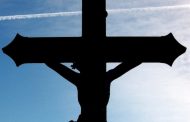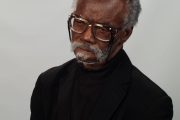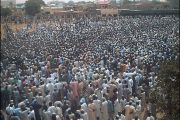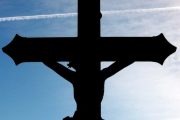October 1st, 1979 and May 29th, 2023 may, on the face of it, share nothing in common. But, in Nigeria’s struggle for democracy, they do. October 1st, 1979 was when the military first departed the stage after 13 years of a journey to nowhere. This is not a statement that may appeal to a lot of people since the military contained the Biafran threat but that was also the time the military in some Asian countries were preparing their countries for industrial take-off. None of the Asian countries had a better blueprint than Nigeria. The Second National Development provided a complete and adequate discursive framework for achieving rapid social transformation and overcoming underdevelopment if there was that political elite with the same developmental temperament and capability as their technocratic counterpart, particularly the Super Permsecs who drafted the document.

Is Nigeria expecting a punchline to democracy from the man of God who is going to take charge in Benue State?
By the time General Gowon was shoved aside, the Nigerian State had, tragically, concluded that, in one opinion, the technocrats had become too powerful for the state and should be dealt with. Till today, some people believe that is where the rains actually began to beat the country because the same opinion think the Super Permsecs had to go because there was need to break the civil service as the check on corruption and lack of accountability.
October 1st, 1979 therefore came with great expectations. Although President Shehu Shagari was none of a fire eater, and a General Danjuma would, by his own admission, have wished that a more independent minded Mallam Adamu Ciroma had fought to the end and possibly won the presidential candidacy of the National Party of Nigeria (NPN), Shagari was not a vicious player or was not seen as such. So, all hopes were not lost that the center had someone who could be entrusted with democracy. After all, Chief Obasanjo had said that the best candidate did not always win an election.
While Shagari who is now late did not disappoint as far as the pomp and pageantry of the swearing-in ceremony was concerned, there were sparks at the state government levels, from Lagos to Kano, from the old Cross Rivers State to Kaduna and everywhere else. Clement Isong who became governor of Cross Rivers State or whatever it was called then had been a governor of the Central Bank of Nigeria (CBN) when that institution had the mystique of masquaredes. Jim Nwobodo who emerged as governor of what is now Anambra, Abia and Imo states had been a well known soccer enthusiast. Lateef Jakande who emerged governor of the old Lagos State when Asiwaju Tinubu was either a student or a job seeker had been a journalist and who, as a well known campaigner for decency, carried a lot of promise. This is not to talk of the late Bola Ige, Michael Ajasin and Bisi Onabanjo in Oyo, Ondo and Ogun states or whatever these states were called then. Either Chief Ajasin or Onabanjo had been a teacher and was revered by many of his former students across the entire LOOBO states then (LOOBO states referred to Lagos, Oyo, Ogun, Bendel and Ondo, hoping this memory can be relied upon). Bendel State now Edo and Delta had an interesting governor then. His area of specialisation gave him a mystique. He was a Professor of Morbid Anatomy. Hahahahaha!
Up North, change was in the air. Borno governor was Mohammed Goni, a radical student activist in his university days. In Bauchi, the governor, Tatari Ali, was not a radical but he was an informed man of the system, comparable to Isong. Ali was a Federal Permanent Secretary and probably played a role in the crafting of the 2nd National Development Plan. In Benue State, the governor had the pedigree of an anti-corruption crusader. Beyond that, he had attended Fourah Bay College in Sierra Leone. Fourah Bay College is a big name university, with history. In Plateau, Solomon Lar was in charge, enacting the ground norm of ’emancipation’ long before political theory made it the core of critical exegesis in the post Cold War. Even from the headquarter of the Caliphate came a polo minded Historian, the late Shehu Kangiwa who came to power with a PhD in History. Who could be more equipped to preside over the fate of millions of other human beings than a Historian. The last but not the least in this listing were Abubakar Rimi and Abdulkadir Balarabe Musa in Kano and Kaduna respectively. They defined the radius for democracy throughout 1979 – 1983. Only God would know what they would have done of democracy survived beyond the jackboot in 1983.

Will it be anything but a categorical statement on the world according to Asiwaju Bola Tinubu on May 29th, 2023?
On October 1st, 1979, both of these governors made the proclamation banishing Haraji and Jangali tax in each of the two states. The history of those two forms of taxation made the proclamation epochal and revolution. It raised the threshold. Their pronouncement spoke to democracy. They had sent the message that needed to be sent. When the two followed in 1980 by declaring May Day holiday, they raised the stakes much, much higher. Of course, the two governments also paid higher wages. It was not so much how much higher than the federal pay structure. It was still about the political message in that, especially when related to the mealy mouthed notion of Nigerian federalism being a constraint to developmental initiatives at the state tier in Nigeria. Rimi and Balarabe Musa gave a lie to that campaign, even though the lie has continued till today.
It interesting that someone cropped the two governors together and posted it on the social media which is where Intervention got the cover picture for this analysis. The picture or the fellow who creatively posted it had a sense of history. the picture or is it a graphic rather, should instruct political leaders who are busy commending themselves that, although history is constructed, time and memory can also force their way into history and truth. Thirty four years after Rimi and Balarabe Musa, a young man who was probably a beneficiary of their great works found a way of bringing them back to a centrality that incumbents crave but cannot get. Isn’t that ironic?
There is perhaps no irony there in that democracy in Nigeria has been too much of a show, drama without substance. The relative emptiness has compelled people to look back for heroes., for people who were a critique of the dominant features of contemporary democracy: too much of show, too many excuses, over-concentration on political leaders, lack of depth in political leadership, extremes of callousness, excessive premium on search for foreign investment even by governors whose states have nothing but cassava and yams but who insist on going to China, Dubai and everywhere else in the name of seeking foreign investment; a very disintegrated sense of development such that water projects are not linked to road network or zones of agricultural production; extreme emphasis on building roundabouts, airports and badly organised universities, corruption and lacklustre leadership everywhere. The return to these two former governors in popular culture is too strong a protest to ignore by incoming set of political leaders even though it does not conclusively prove that nothing qualitative may have been happening in one corner of a vast country such as Nigeria since Rimi and Abdulkadir Balarabe Musa.

Gov Zulum of Borno State
Something suggests very strongly that Borno State governor, Babagana Zulum is raising the stakes with particular reference to empathy, being on the ground, doing meaningful projects, not advertising his wife and children or claiming to have the answers to everything. There are also no shouts of exclusionary practices by him. It may seem controversial but defendable to say that there was a statement in leadership from Jigawa State on May 29th, 2007. His critics do not have to like Sule Lamido to take note of the idea of paying the weakest in the social chain a monthly stipend from state funds. There are two reasons for that. The first reason is the discourse which produced that policy. In a Muslim dominated state such as Jigawa, the injunction that the leader should not go to bed when he knows that some members of the population have had nothing to eat was a big problem to deal with ahead of the May 2007 inauguration. With the state government’s monthly allocation already mortgaged to a commercial bank, not much could be contemplated at this point but something had to be done. The policy of N18, 000 monthly stipend was the outcome of the weeklong 3-person debate on that issue. Interestingly, two out of the three persons were Christians which is not to say Christians are inherently good but to illustrate just how diffuse the Nigerian society is, contrary to the religious enemy images one find on the pages of newspapers. Of course, it could be said that it didn’t matter whether the informal committee was made up of only Christians, Hindu or whatever since the governor, a Muslim, had the final say. The second reason why the policy is remarkable is empirical. At the time of its implementation, N18, 000 was far more than the $2 that the World Bank used as the benchmark for measuring poverty in Africa. So, that policy ranked on the same scale in terms of significance as the Rimi/Balarabe power praxis. It is possible that, in time, a more sobering narrativisation of some of these hidden steps would become possible should the former governor ever manage to rescue such a project from the siege of intellectual hustlers and slackers.
What the Jigawa story suggests is the possibility of one bright thing here or there but the debate is not whether one bright thing here or there were ever missing but that democracy has been a show rather than substantive. When the resource profile of Nigeria is considered, democracy has been more like a party at which people eat and drink to quench. Countries with little or nothing in the radius of Nigeria have fared much, much better.
And the question then is whether one sentence would make the difference on May 29th, 2023, whether from Abuja or from one of the states. Could that be Father Hyacinth Alia of Benue State or is that coming from the governor of Lagos State (because his boss would, all other things being equal, have become the president). Is it from Kano where the party in power knows what it is to fight back into Africa House? Or is it Kebbi where the governor has roots in the Nigeria Labour Congress (NLC)?
If Nigeria does not hear from any of these gentlemen and/or from Asiwaju Bola Tinubu, then the journey away from formal to substantive democracy may be such a long journey on an untarred road. By the way, when would Nigeria have restored October 1st as the historically significant day for new set of leaders to be sworn-in? What has this country got to do with May 29th which has no significance at all and cannot be invested with any?




























